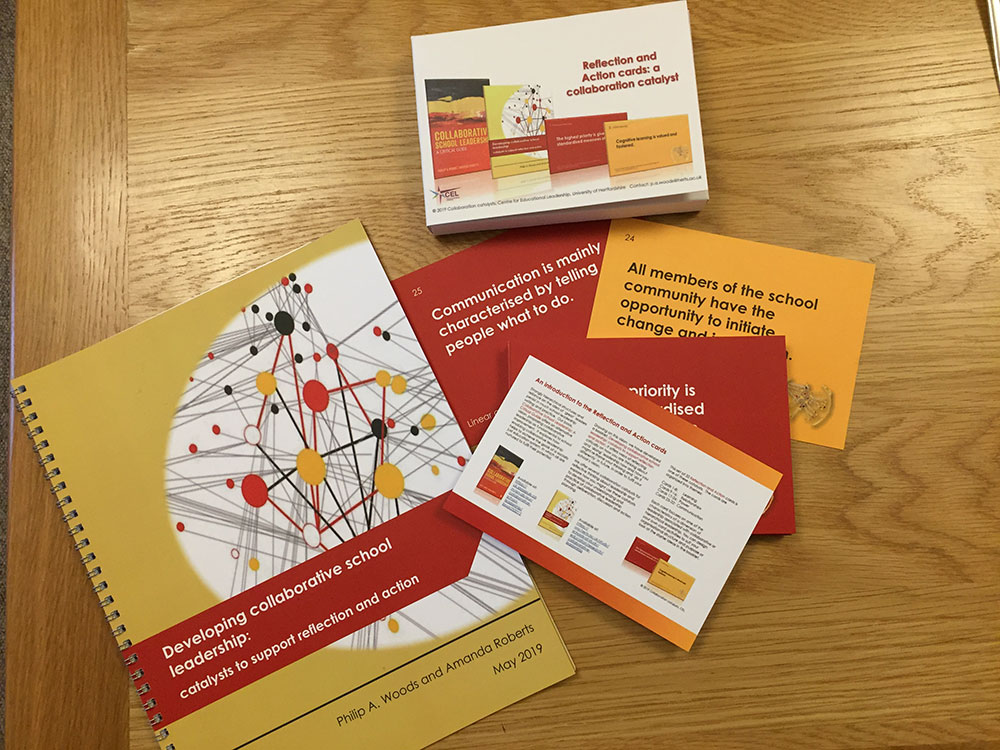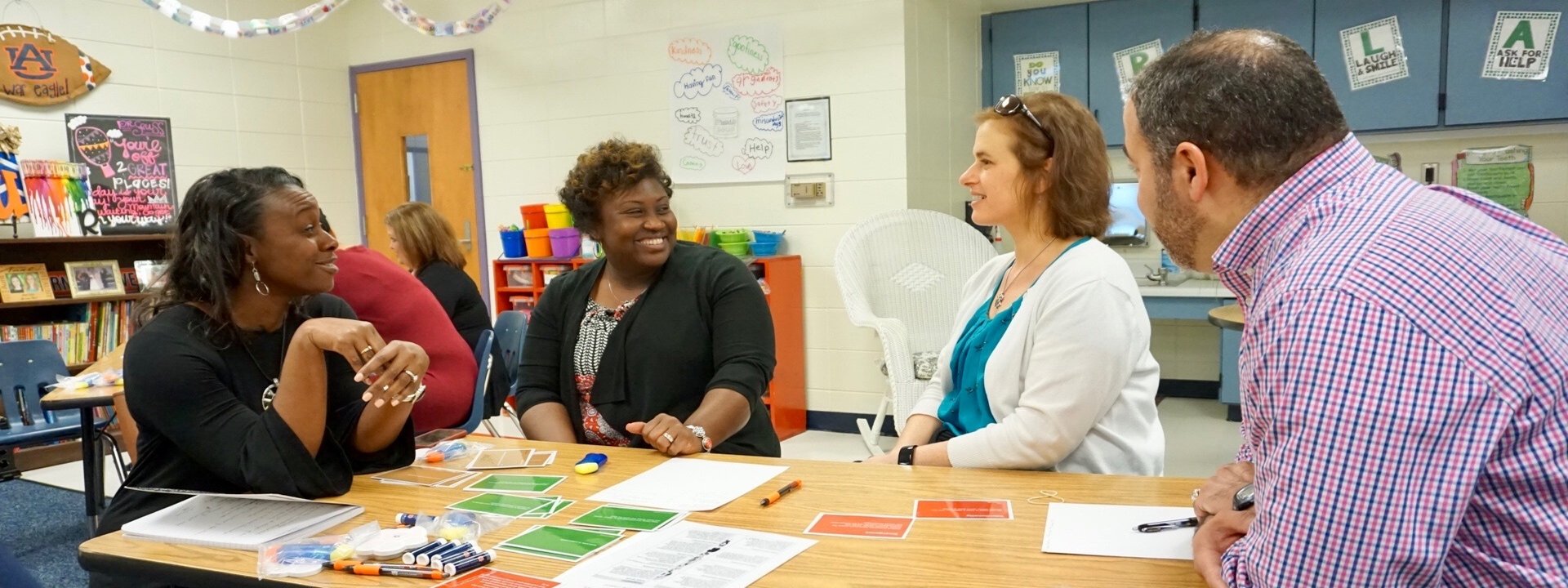Developing collaborative school leadership
Our research critically examines the concept and practice of distributed leadership and how it can be developed to be collaborative and democratic. The work has involved both original research and examination of other studies. Outcomes of the research have been published in a number of publications, including our book Collaborative School Leadership: A Critical Guide (by P. A. Woods and A. Roberts) published by SAGE in 2018.
Our key conclusions are:
- Developing distributed leadership in a school can work well in promoting learning, innovation and democratic citizenship, but benefits are not automatic.
- Factors important to success include strong co-ordination and planning, a cohesive culture, a focus on the school’s core purpose of learning, developing leadership capacity and internal accountability.
- Concentrating on distributed leadership is not enough: a more critical concept of leadership underpinned by democratic and social justice principles is needed, which is where collaborative leadership comes in.
We define collaborative leadership as leadership that is enacted by everyone in the school and works for inclusive participation and holistic learning. This means that collaborative leadership involves the following:
- Firstly, an awareness that leadership is a distributed process.
- Secondly, a willingness to work out how best to make the most of this distribution, by creating the conditions for teachers, other staff, students and others to develop as confident and pro-active leaders of change aware that leadership is not the preserve of senior leaders.
Thirdly, a commitment to demonstrating an explicit value base, fostering collaborative practice and personal growth in a climate that promotes mutual respect, critical dialogue, independent thinking and a sense of belonging.
Resources for developing collaborative leadership
Based on our research, we have prepared a booklet, with supporting ‘reflection and action’ cards, designed to support policymakers and practitioners in school education who want to work with others to nurture the practice of collaborative leadership. They offer ways of reflecting critically on how you are thinking about and ‘doing’ leadership now and how you might re-frame your thinking and ‘do it differently’ in future, in order to fulfil your school’s vision.
These booklet and cards are intended for anyone concerned with developing collaborative leadership in schools. That includes teachers, students, school leaders, leadership development facilitators and others with responsibilities for planning leadership development in schools, school networks, school groups such as multi-academy trusts, national and local education authorities, universities and other agencies.

The resources are offered in the spirit of a ‘learning model’ approach to leadership development, as opposed to a ‘transmission model’. The ‘learning model’ nurtures leadership through participants’ questioning, problem-solving and application of creative responses in leadership practice: a process of ongoing discovery in a culture of collaborative enquiry through which learning is made visible, shared and enhanced.
For more information, please contact Phillip Woods.

